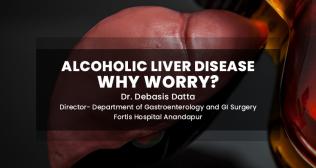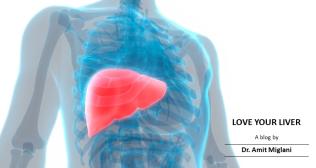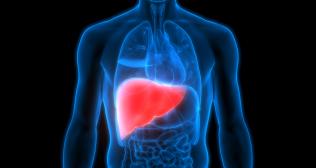
Gastrointestinal Surgery in Mumbai
Gastrointestinal Surgery in Mumbai
Gastrointestinal (GI) surgery is a medical speciality encompassing a wide range of procedures used to treat conditions and disorders affecting the digestive system. This includes the gastrointestinal tract and other organs like the gallbladder, liver, pancreas, and bile ducts. Surgery can be the best treatment option for certain GI disorders and diseases when medications or lifestyle modifications are no longer effective. Fortis Hospital, Mulund, is one of the best hospitals for gastrointestinal surgery in India, providing exceptional care for both common and rare GI diseases and cancers. Our highly skilled gastrointestinal surgeons offer the most advanced surgical techniques, such as robot-assisted GI surgery, using the latest technology and clinical guideline protocols.
Why Choose Fortis Hospital, Mulund, for Gastrointestinal Surgery?
At Fortis Hospital, Mulund, we offer comprehensive, multidisciplinary surgical care to treat all types of conditions that affect the digestive system, ranging from benign disorders to complex cancers. With state-of-the-art infrastructure, our experts use the most advanced minimally invasive techniques like robotic surgery whenever possible for greater precision, faster recovery, and the best possible outcome. Our team, including gastroenterologists, surgeons, and other specialists, works with you to plan and deliver exceptional and personalised care throughout your journey, from initial consultation and treatment planning to post-op recovery and long-term support.
This blog provides an overview of gastrointestinal surgery - what it is, what conditions it can treat, the types of GI surgical procedures, recovery time, the benefits and risks, etc.
What is Gastrointestinal Surgery?
Gastrointestinal surgery is a treatment involving a variety of surgical procedures to diagnose and treat diseases and conditions that arise from the digestive system. Your digestive system is made up of your gastrointestinal tract, comprising the oesophagus, stomach, small and large intestines, and your biliary tract, including the gallbladder, liver, pancreas, and bile ducts. These wonderful organs work together to break down and absorb nutrients from the food and drinks you consume. It’s important to keep your digestive system healthy to maintain overall health.
What Conditions does Gastrointestinal Surgery Treat?
Common GI symptoms such as upset stomach, bloating, diarrhoea, and nausea can be managed or resolved with medications. However, severe GI symptoms or disorders that won’t go away with lifestyle changes or medical treatments may be treated with surgery.
At Fortis Hospital, Mulund, our GI surgeons provide compassionate, expert surgical care for various GI disorders, including:
- Acid reflux
- Appendicitis
- Colorectal cancer
- Oesophageal disorders
- Gallstones and gallbladder disease
- Hernia
- Inflammatory bowel disease (IBD)
- Liver disorders
- Obesity
- Pancreaticobiliary disorders
As our patients, our surgical gastroenterologists will carefully assess your condition to determine if surgery is the best option.
What happens during Gastrointestinal Surgery?
Surgery may be done using an open or minimally invasive approach, depending on the disorder being treated as well as the patient’s overall health and the surgeon’s expertise.
- Open Surgery – this traditional approach involves larger cuts to give your surgeons a detailed perspective of the affected area. It is often used for more extensive conditions, such as advanced cancer, when minimally invasive techniques are not appropriate.
- Laparoscopic GI Surgery – a surgeon uses specialised instruments inserted through small incisions to access and treat the affected area of the digestive system.
- Robotic GI Surgery – a surgeon controls the hi-tech robotic arm equipped with surgical tools to perform procedures on the digestive tract.
- Endoscopic Procedures – your doctor uses non-invasive methods endoscopic mucosal excision, to remove tiny tumours, polyps, or abnormal growths from the digestive tract, often detected during screening.
What are the Types of Gastrointestinal Surgery?
There are different types of gastrointestinal surgery, each of which is designed to address a specific condition or problem within your GI tract.
At Fortis Hospital, Mulund, we provide the highest level of surgical treatment, focusing on procedures using less-invasive techniques, including laparoscopic GI surgery and robotic GI surgery, for faster recovery, fewer complications, and excellent patient outcomes. Our GI surgeons have decades of practice performing minimally invasive surgeries, often delivering high success rates. Our specialists will choose the best surgery method that best suits your unique condition.
Some of the common GI surgical procedures we offer include:
- Adrenalectomy – a surgical procedure to remove one or both of the adrenal glands.
- Appendectomy – a surgery to remove the appendix, which has become inflamed or infected due to appendicitis.
- Bariatric surgery – surgery to help people with obesity lose weight and live a healthier life.
- Cholecystectomy – a surgical procedure to remove the gallbladder to treat gallstones or other conditions affecting the gallbladder.
- Colorectal surgery – surgical procedures to treat colorectal cancer and other conditions affecting the colon, rectum and anus.
- Foregut surgery – a range of procedures performed on the upper GI tract, such as the oesophagus, stomach, and duodenum.
- Hernia repair – procedures to repair different types of hernia, a condition where an organ or tissue bulges through a weak spot in the abdominal wall.
- Hepato-pancreato-biliary (HPB) surgery – surgeries to treat diseases affecting the liver, pancreas, gallbladder and bile ducts, such as pancreatitis, pancreatic cancer, and liver cancer. These procedures, such as pancreaticoduodenectomy (Whipple procedure), are among the most complex ones, requiring a high degree of expertise and skill.
- Nephrectomy – a procedure often used to treat kidney cancer and other kidney problems by removing all or part of a kidney.
- Splenectomy – a surgical procedure to remove the spleen to treat spleen injuries, blood disorders or certain cancers.
What are the Benefits and Risks of Gastrointestinal Surgery?
Gastrointestinal surgeries can be life-saving, especially in times of emergency. Major benefits of GI surgery include:
- Improved digestive health
- Relief from digestive symptoms such as discomfort and pain
- Life-saving procedures in emergencies, such as bleeding in the digestive tract or a ruptured appendix
- Less-invasive options – robotic or laparoscopic approach offers numerous advantages like smaller incisions, less pain after surgery, shorter hospital stays, faster recovery time, and a reduced risk of complications
- Better quality of life and long-term health
As with any surgical procedure, GI surgeries carry some risks, such as:
- Infection
- Bleeding
- Blood clots
- Short-term digestive issues
- Reaction to anaesthesia
What is the Recovery Time for Gastrointestinal Surgery?
The recovery time for gastrointestinal surgeries varies widely based on various factors, including the type of surgical procedure used to treat the condition and the patient’s overall health. For instance, routine procedures such as hernia repair surgery can be performed on an outpatient basis, however, more complex procedures like pancreas or liver surgery, typically require longer hospital stays.
Conclusion
Gastrointestinal surgery is a critical intervention to treat or manage a wide range of complex digestive disorders that do not respond to medicines or lifestyle changes. However, this specialised field demands a high level of skills and expertise from the treating surgeons as well as cutting-edge infrastructure for the best possible outcomes. At Fortis Hospital, Mulund, we combine state-of-the-art technology with world-class expertise to address the most complex cases. Our GI surgeons are at the forefront of performing minimally invasive gastrointestinal surgery techniques. Our patient-centered and compassionate approach ensures you receive the best care tailored to your unique needs.
Categories
Clear allMeet the doctor

- Gastroenterology and Hepatobiliary Sciences | Gastroenterology | Gastroenterology and Hepatobiliary Sciences
-
31 Years
-
3000



















